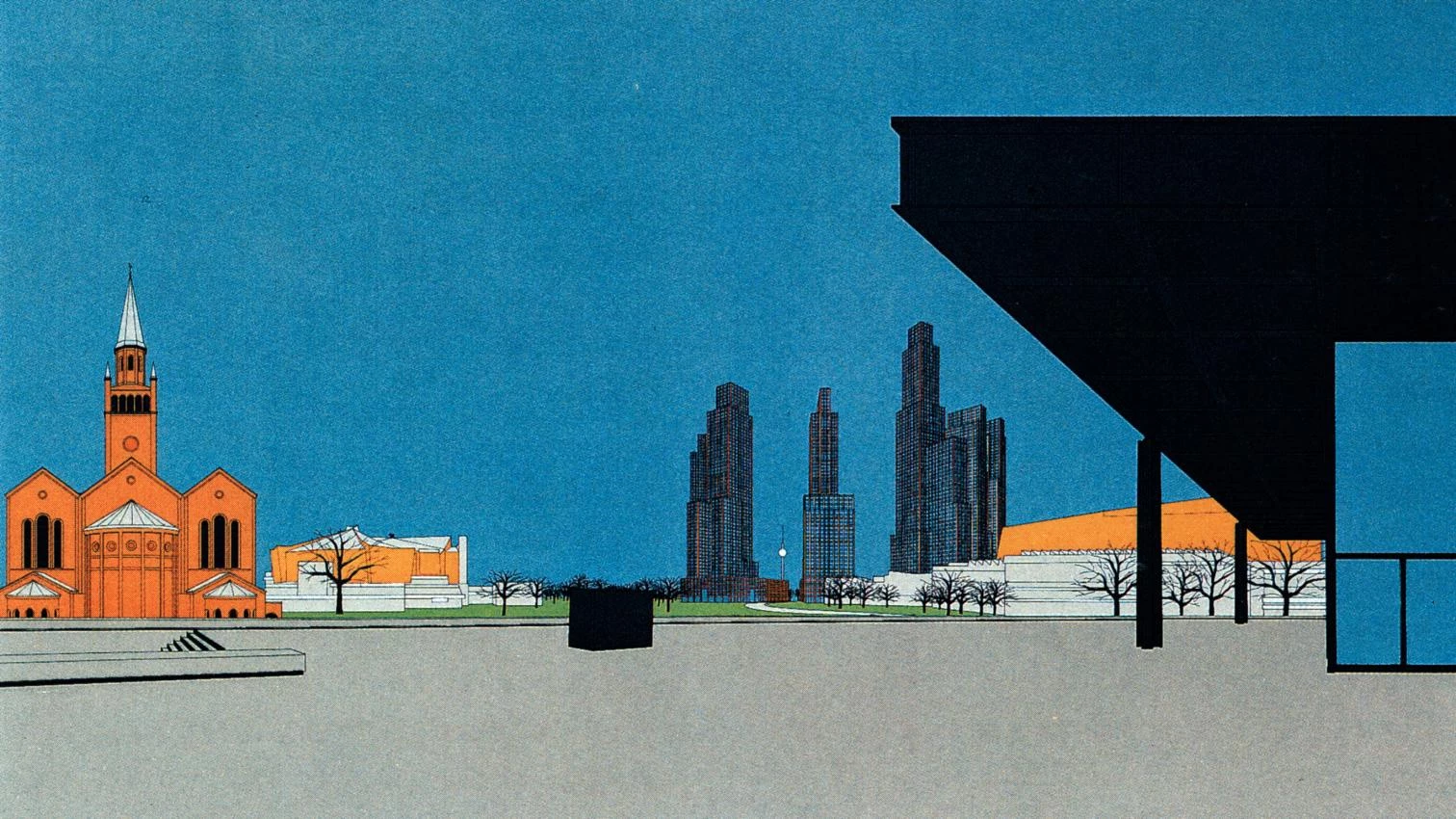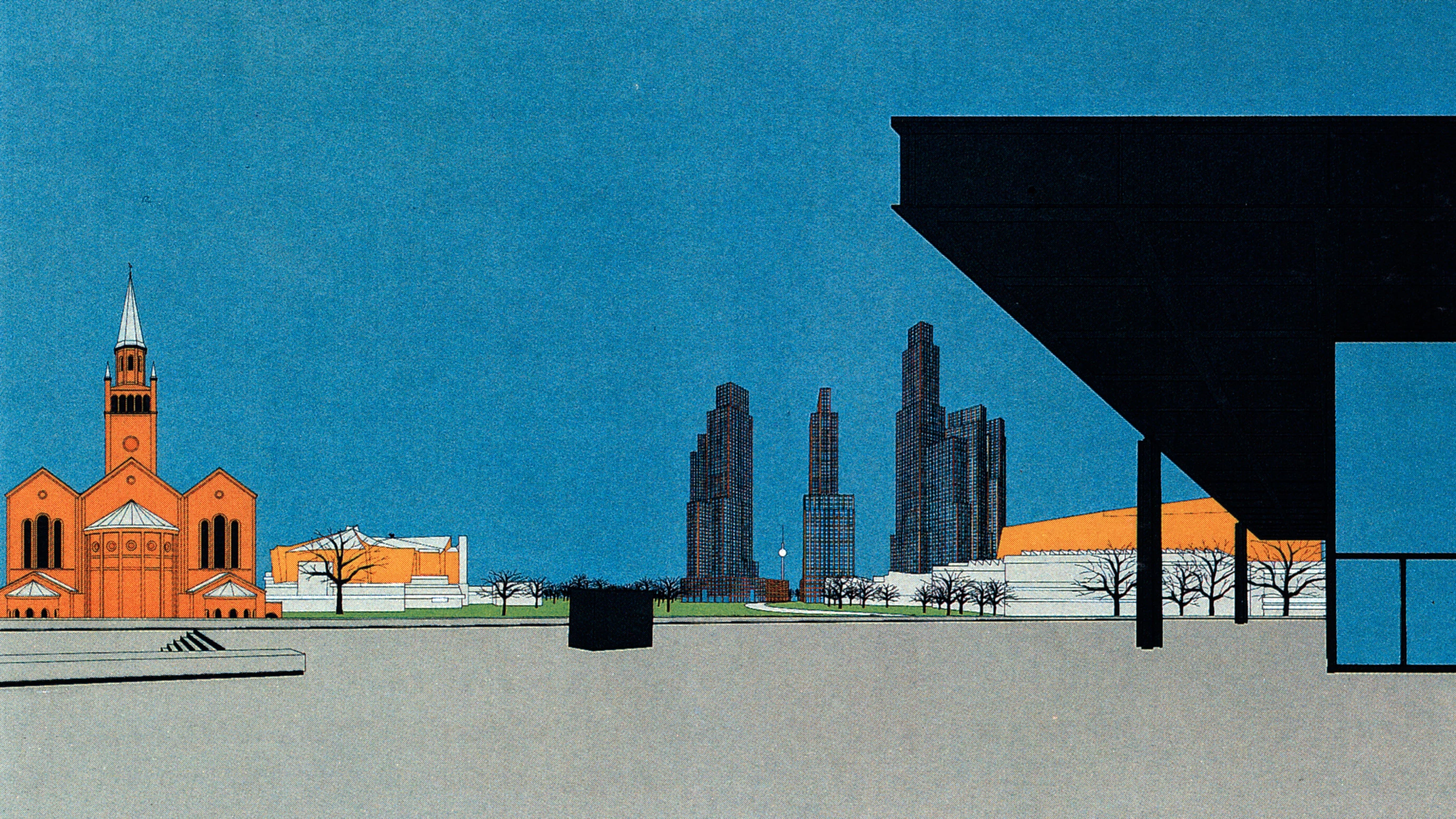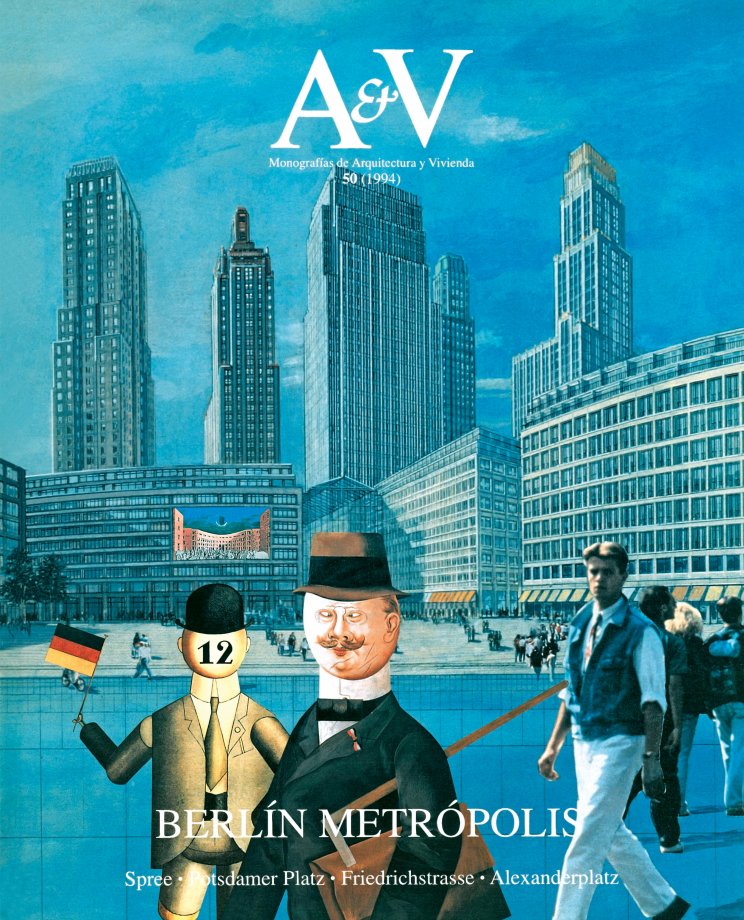
Hans Kollhoff, concurso de Potsdamer Platz
As Berlin embarks on a building boom of approximately 13 million square meters, the city seems unable to clearly establish how it will - or should - be affected by this activity. On the one hand, Berliners are struggling to define who they are and what their city should become, now that the division is no longer lending its impetus to this metropolis. However, Berlin is not exactly a vacuum, and the confusion into which Germany has been plunged after reunification continues.
Violence against foreigners, culminating in the murders in Molln and Solingen, did little to support Berlin's bid for the 2000 Olympics. The weakened economy has stalled other projects. And tensions between East and West Berliners, 'with the wall on their heads', persist: former East Berliners were outraged at Foreign Minister Klaus Kinkel's plans to demolish the Palast der Republik, a 1970s 'people's house' located in East Berlin and occupied by restaurants, auditoriums and the parliament of the former German Democratic Republic, the Vallis Hammers, to replace it with his ministry. "We should ask" - asked the East German writer Kurt Schlesinger - "why don't they start by demolishing their buildings?"...[+]






